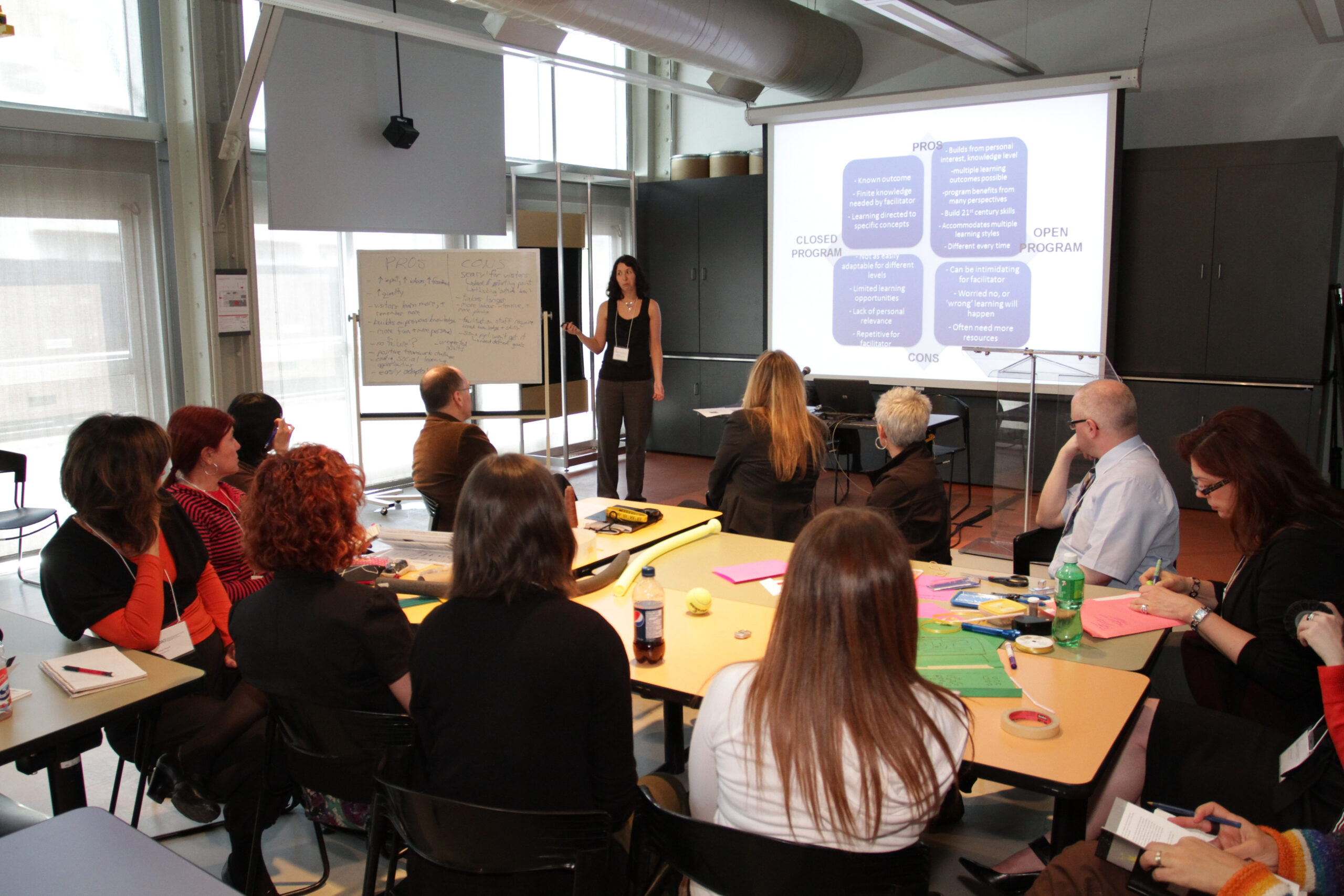A roadmap to elevating science education
As a national membership association, we provide knowledge, representation, support, connections, and services for our members. We raise professional standards, advocate for informal science engagement, and inform policy on behalf of the broader science engagement sector.

Our Strategic Approaches
The CASC network advances social change by being a supporter, connector, and champion for our members, extending the reach and strengthening the impact of their work.
Our 2024-2026 strategic plan reaffirms our beliefs, our core values and our strategic focus areas that will contribute to a thriving science and innovation culture of engaged citizens across Canada.
Our Approach is as follows:
Being a Supporter
Strengthen members & their capacity
- Provide professional development opportunities that help our members reach their full potential and help them advance their impact.
- Support research that will benefit members.
- Support all sizes and types of science engagement organizations
- Respect member perspectives and engage with priorities that matter to members.
Being a Connector
Ecosystem building and strategic partnerships to connect STEM & society
- Establishing CASC as ‘go to’ network for public knowledge mobilization within the national research ecosystem.
- Provide enjoyable online and offline opportunities for connection among our network, community groups, and other disciplines and sectors.
- Facilitate communities of practice for members to share, inspire each other, and cooperate on impactful topics.
Being a Champion
Represent Canadian public STEM engagement sector
- Build national initiatives that work towards systems change
- Biggest fan and supporter of our members, amplifying their work on a national stage and showcasing how the network is making a positive difference.
- Foster solidarity among members of our network and across the broader public engagement sector.
CASC will honour our core beliefs and values while pursuing our strategic goals. Check out our 2024-2026 strategic plan for details.
Our strategic plan
This strategy is an opportunity to reaffirm our core values and put trust in our strengths as a Canadian community of science engagement organisations. Our members play an essential role in cultivating a joy of learning and enriching the lives of people across Canada, and this strategy sets out how we can best meet these responsibilities.
Previous strategic plans
Annual Reports
Diversity, inclusion, equity & accessibility (DIEA)
The Canadian Association of Science Centres (CASC) is committed to breaking down barriers and strengthening Diversity, Inclusion, Equity and Accessibility (DIEA) capacity within the informal science learning and public engagement sector.
DIEA defined
The definitions CASC uses for the words diversity, inclusion, equity and accessibility (DIEA).
Diversity
The variety of unique dimensions, qualities and characteristics each individual possesses.
Inclusion
Creating a culture that strives for equity and accepts, embraces, respects and values differences of a collective.
Equity
Fair treatment of everyone and ensuring all have equal opportunity to participate in all aspects of society and its benefits.
Accessibility
A measure of how simply a person can participate in an activity.
Our DIEA commitment
Principles of DIEA are woven into all of our work as outlined in CASC’s core values, which are the deeply ingrained principles that guide all of CASC’s actions to achieve our objectives. Our core values are visible in every aspect of the organization – from operations, programs, and communications to internal policies and processes. CASC’s values serve as our cultural cornerstones. They are never compromised, either for convenience or short-term economic gain.
CASC Core Values
- Collective impact: We are a national network that brings diverse people and organizations together in a structured and collaborative way to achieve social change.
- Trust: We actively work to build and maintain trust by being honest, credible, transparent, authentic, reliable, and accountable.
- Shared understanding: We are curious and listen deeply, with compassion and humility, to understand and meet the needs of our members, partners, audiences, and staff.
- Diverse and inclusive: We bring together people with a wide range of backgrounds, opinions, ideas, and skills, from a variety of types of organisations. We cultivate a culture of inclusion where people feel respected and valued for who they are as an individual or group and for their contributions.
- Effective communication: We strive to communicate clearly and are always learning, using approachable, relevant, and accessible strategies in all our communications, and support the advancement of science communication.
- Environmental sustainability: We will continue to envision and implement sustainable environmental practices across CASC operations and support leading the CASC network towards a greener future.
Organizational Make-up
Over the past 40 years, the leadership of CASC has transitioned to being predominantly led by women. This reflects the advancement of women in leadership roles across the sector.
Over the past 10 years, and especially as part of the 50-30 challenge, CASC has focused more deeply on increasing the representation of other equity-deserving groups on our Board of Directors. Presently, CASC’s Board of Directors is composed of 80% women, 20% men, 27% who identify as being part of an equity-deserving group (not including women), including 2SLGBTQI+, Indigenous, racialized, and/or immigrant communities.
Among CASC staff, 70% identify as women, and 30% men. Over 50% of CASC staff identify as being part of an equity-deserving group (not including women), including 2SLGBTQI+, racialized, neurodiverse, and/or immigrant communities.
General Description of Activities
Part of CASC’s DIEA (diversity, inclusion, equity, accessibility) strategic approach is to center diverse communities by creating conditions for strengthening trust, connection, and emergence to bridge fragmented efforts and make collaboration work at scale. We apply the following beliefs in the work we do:
- “Nothing about us without us.” Diverse participation and representation are non-negotiable. We ensure that no policy, initiative, or program is implemented without the direct participation of members of the group(s) affected by it.
- Collaboration is essential to tackle global challenges. No one organization can solve climate change, biodiversity loss, and the proliferation of misinformation. Diverse perspectives and organizations are needed for effective solutions and to foster collective impact.
- There are many ways of knowing. Our work is informed by inclusive approaches that value knowledge gained from Indigenous and Western research methods, as well as the inherent need for multi- and interdisciplinary, mission-driven research to help address pressing social, technological, economic, and health challenges.
CASC has an internal DIEA Committee with representation across staff roles within the organization and diverse identities, including CASC’s CEO. This committee has a mandate to establish priority areas of improvement that pertain to DIEA within CASC, and establish action items that committee members and/or the collective group can take on to achieve this improvement. The committee is accountable through regular reports on our plan and progress.
In addition, the ScienceUpFirst/LaSciencedAbord initiative has an Advisory Committee, which includes a diverse group of senior leaders that review, advise and mentor, and draw on the ScienceUpFirst/LaSciencedAbord coalition of experts, a deep network of scientists, researchers and science communicators from across Canada.

